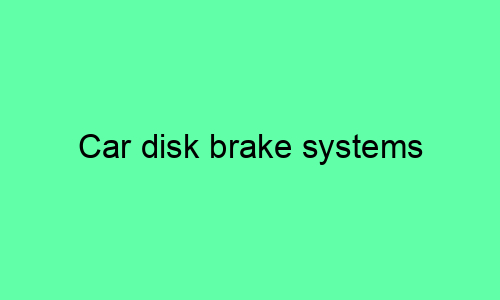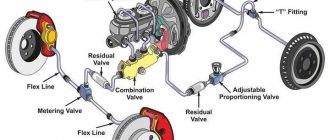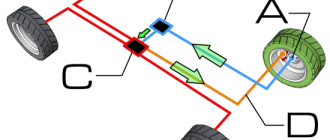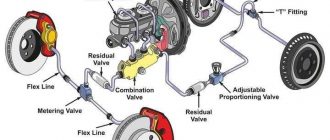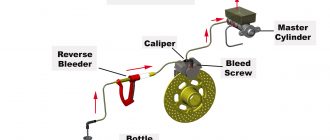Car Disk Brake Systems
Disk brake systems are a type of brake system that uses a rotating disk to slow down or stop a vehicle. Disk brakes are more effective than drum brakes, which use a rotating drum to slow down or stop a vehicle. Disk brakes are also more resistant to fading, which is when the brakes lose their effectiveness due to heat buildup.
Components of a Disk Brake System
A disk brake system consists of the following components:
* **Brake pads:** The brake pads are the parts of the brake system that come into contact with the rotating disk. The brake pads are made of a friction material that helps to slow down or stop the vehicle.
* **Brake rotors:** The brake rotors are the rotating disks that the brake pads come into contact with. The brake rotors are made of a metal that is resistant to heat and wear.
* **Brake calipers:** The brake calipers are the components that house the brake pads. The brake calipers are mounted to the wheel hubs and are responsible for applying pressure to the brake pads.
* **Brake lines:** The brake lines are the tubes that carry brake fluid from the master cylinder to the brake calipers.
* **Brake master cylinder:** The brake master cylinder is the component that pressurizes the brake fluid.
How Disk Brakes Work
When the brake pedal is applied, the brake master cylinder pressurizes the brake fluid. The brake fluid is then sent through the brake lines to the brake calipers. The brake calipers then apply pressure to the brake pads, which come into contact with the rotating brake rotors. The friction between the brake pads and the brake rotors helps to slow down or stop the vehicle.
Advantages of Disk Brakes
Disk brakes have several advantages over drum brakes, including:
* **Increased stopping power:** Disk brakes provide more stopping power than drum brakes. This is because the brake pads come into contact with the rotating disk over a larger surface area than the brake shoes come into contact with the rotating drum in a drum brake system.
* **Improved resistance to fading:** Disk brakes are more resistant to fading than drum brakes. This is because the brake rotors are more efficient at dissipating heat than the brake drums in a drum brake system.
* **Longer lifespan:** Disk brakes have a longer lifespan than drum brakes. This is because the brake pads in a disk brake system are less likely to wear out than the brake shoes in a drum brake system.
Disadvantages of Disk Brakes
Disk brakes also have some disadvantages, including:
* **Higher cost:** Disk brakes are more expensive than drum brakes. This is because the components of a disk brake system are more complex than the components of a drum brake system.
* **Increased noise:** Disk brakes can be noisier than drum brakes. This is because the brake pads in a disk brake system come into contact with the rotating disk over a larger surface area than the brake shoes come into contact with the rotating drum in a drum brake system.
* **Increased maintenance:** Disk brakes require more maintenance than drum brakes. This is because the brake pads in a disk brake system need to be replaced more often than the brake shoes in a drum brake system.
Conclusion
Disk brake systems are a more effective and efficient type of brake system than drum brake systems. Disk brakes provide more stopping power, are more resistant to fading, and have a longer lifespan than drum brakes. However, disk brakes are also more expensive, noisier, and require more maintenance than drum brakes.
